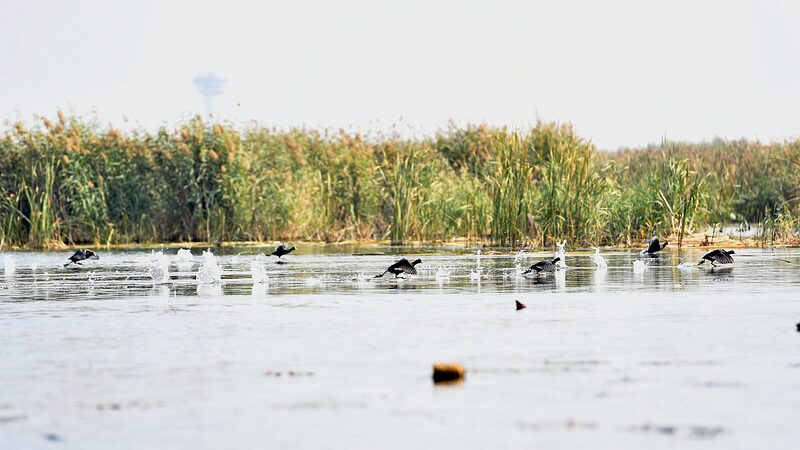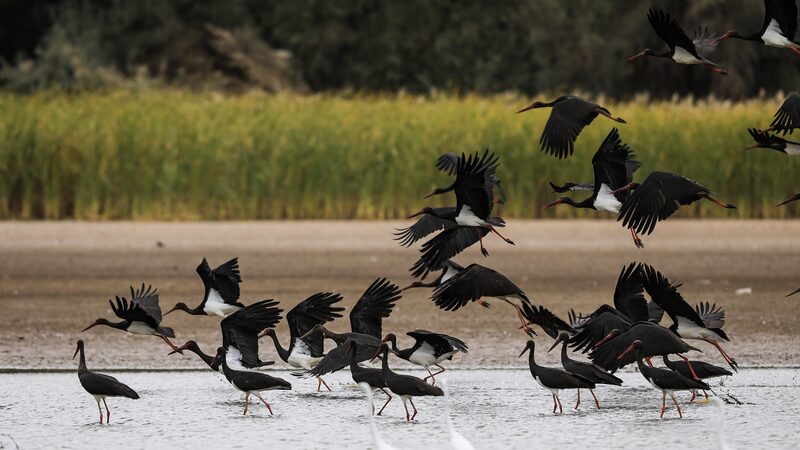Two fledgling black-faced spoonbills, an endangered species with a global population of fewer than 7,000 individuals, have been discovered breeding for the first time in the Yellow River Delta National Nature Reserve in the Chinese mainland. This significant finding extends the known breeding range of these rare birds several hundred kilometers to the south.
According to the management committee of the Shandong Yellow River Delta National Nature Reserve, the two birdlings were spotted in late May during a routine patrol by Zhang Shuyan, deputy head of the Huanghekou management station. “The bird is an indicator species of wetland environmental quality, demonstrating that the ecological environment of the Yellow River Delta has improved,” Zhang said. “Moreover, the birds observed this time are hybrids of black-faced spoonbills and white spoonbills, which have significant research value.”
The black-faced spoonbill is a large white wading bird with a distinctive spoon-shaped beak resembling a traditional Chinese instrument called the “pipa.” It is under national first-class protection in China. The species generally breeds on islands near the Korean Peninsula. The discovery in the Yellow River Delta not only expands their breeding range but also highlights the success of wetland restoration efforts in the area.
According to the newly released 2024 International Black-faced Spoonbill Census, the global population of the species is 6,988, with approximately 6,200 residing in China. The presence of these endangered birds in the Yellow River Delta underscores the region’s importance as a habitat for rare wildlife and the effectiveness of conservation measures.
The fledglings are reported to be healthy and have since left the nest. Their successful breeding in the area offers hope for the future of the species and provides valuable opportunities for further research and conservation initiatives.
Reference(s):
Endangered black-faced spoonbills found breeding in Yellow River Delta
cgtn.com








